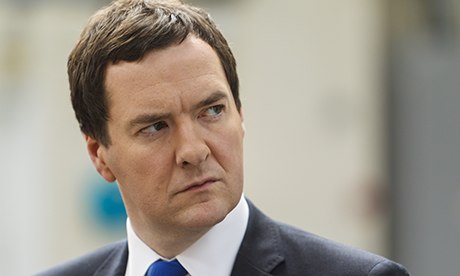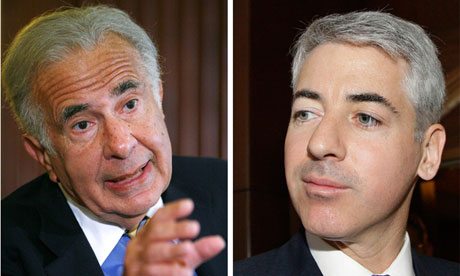The industry’s failure to spot holes in the accounts of several collapsed companies has led to clamour for reform writes Jonathan Ford and Tabby Kinder in The FT
At the end of 2003, the Italian dairy company Parmalat descended into bankruptcy in an eye-catchingly abrupt manner. A routine bank reconciliation revealed that €3.9bn of cash which Parmalat was supposed to have at Bank of America did not actually exist.
The scam that emerged duly blew apart one of Italy’s best-known entrepreneurial companies, and sent its founder, Calisto Tanzi, to prison for fraud. Dubbed Europe’s Enron, it humiliated two large auditing firms, Deloitte and Grant Thornton, and ended up costing the former $149m in damages.
Yet it rested on an apparently simple deception: the reconciliation letter on which the auditors were relying had been forged.
There were shades of Parmalat’s collapse again last week when, nearly two decades later, another fast-growing European entrepreneurial company blew up in strikingly similar circumstances.
After years of public questions about the reliability of its accounts, primarily from the FT, the German electronic payments giant, Wirecard, was forced to admit to a massive hole in its balance sheet.
Rattled by the failure of an independent probe by KPMG to verify transactions underpinning “the lion’s share” of its reported profits between 2016 and 2018, and unable to publish its results due to issues eventually raised by its longstanding auditors EY, Wirecard finally capitulated. It announced that purported €1.9bn cash balances at banks in the Philippines probably did “not exist” and parted company with its chief executive Markus Braun. Evidence relied on by EY had been bogus.
It remains unclear exactly how the crucial confirmation slipped through the cracks. According to one EY partner: “The general view internally is that confirming historic cash balances is auditing 101, and [that] ordinary auditing processes were followed, including third party verification, in which case the fraud was sophisticated in its use of false documents.”
Others, however, take a less charitable view of such slip-ups, especially when, as with both Wirecard and Parmalat, they were preceded by so many questions about the reliability of the figures.
“The integrity of the cash account [which records cash and should reconcile to all the other items in the accounts] is totally central to the whole system of double-entry bookkeeping,” says Karthik Ramanna, professor of business and public policy at Oxford’s Blavatnik School of Government. “If there is no integrity to the cash account, then the whole system is just a joke.”
Shareholder support
Wirecard’s collapse is the latest in a wave of accounting scandals that has swept through the corporate world, including UK outsourcing group Carillion and Abu Dhabi-based hospital group NMC Health, as well as alleged frauds at the mini-bond firm London Capital & Finance (LCF) and the café chain Patisserie Valerie.
Many fear a further surge as the Covid-19 lockdown washes away those companies with weakened balance sheets or business models in the coming months.
Questions about “softball” auditing have dogged many recent high-profile insolvencies. Carillion’s enthusiasm for buying companies with few tangible assets for high prices led it to build up £1.5bn of goodwill on its balance sheet. Despite vast losses at some of those subsidiaries, it had written down the value of just £134m of that goodwill when the whole edifice caved in.
Similar questions hang over LCF, where close reading of the notes in the last accounts it published show how the estimated fair value of its liabilities far exceeded that of its assets in 2017, making it technically insolvent roughly 18 months before it collapsed taking with it more than £200m of savers’ cash. Yet EY gave the accounts a clean bill of health.
Such cases have raised concerns about the independence of auditors, and their willingness to challenge the wishes of management at the client, who are often driven by their own desire for self-enrichment or survival.
“It’s so important if you want to keep the relationship to have a rapport with the finance director,” says a financier who once worked at a Big Four auditing firm. “It is basically sometimes easier to swallow what you are told.”
It is a problem that has deepened with the adoption of modern accounting standards. Over the past three decades, these have progressively dismantled the traditional system of historical cost accounting with its emphasis on the verifiability of evidence and using prudent judgment, replacing it with one based on the idea that the primary purpose of accounts is to present information that is “useful to users”.
This process has allowed managers to pull forward anticipated profits and unrealised gains, and write them up as today’s surpluses. Many company bonus schemes depend on the delivery of the “right” accounting numbers.
In theory, shareholders are supposed to provide a check on the influence of self-interested bosses. They choose the auditors and set the terms of the engagement. But in practice, investors tend not to assert themselves in the relationship. Scandals rarely lead to the ejection of auditors.
So after UK telecoms group BT announced a £530m writedown in 2017 because of accounting misstatements at its Italian business, the auditors, PwC, were not sanctioned by investors. Far from it, the firm was reappointed with more than 75 per cent support. And when EY came up for re-election at Wirecard in the summer of 2018, despite rumblings about the numbers, it was voted back by more than 99 per cent.
Tight budgets and timetables
It is not only an auditor’s desire for an easy life that can drain audits of that all important culture of challenge. There are practical issues too. Tight budgets and timetables limit the scope for investigation.
Audit fees in Europe are far below those in the US. Audits of Russell 3000 index companies in the US cost 0.39 per cent of company turnover on average. Those in Europe average just 0.13 per cent, while for German companies it is a feeble 0.09 per cent.
With fees low, auditing teams are often stretched thin, with only limited support from a partner out of a desire to limit costs and maximise the number of audits done. Audit is traditionally the junior partner in a big accountancy firm, with around four-fifths of the Big Four’s profits coming from the non-audit consultancy side.
Take the last audit of BHS under the ownership of Philip Green, who sold the failing UK retailer to a little known entrepreneur, Dominic Chappell, in 2015. The chain subsequently collapsed the following year.
The PwC partner, Steve Denison, recorded only two hours of work auditing the financial statements. The number two, an auditor with just one year’s post-qualification experience, recorded 29.25 hours, and the more junior team members 114.6 hours. Mr Denison was later fined for misconduct and effectively banned by the audit regulator.
According to Tim Bush, head of governance and financial analysis at the Pensions & Investment Research Consultants, a shareholder advisory group, this reliance on juniors tends to result in “box checking” rather than an investigative approach to audit processes. “Audit teams are less likely to have a feel for the company’s business model,” he says.
This in turn can open the door to abuse. Scams often hinge on faith in some implausible business activity. Parmalat’s €3.9bn cash pile, for instance, was supposed to have come from selling milk powder to Cuba. But an analysis of the volumes claimed suggested that if the company’s numbers were accurate, each of the island’s inhabitants would have needed to be consuming 60 gallons a year.
As the author Richard Brooks noted in his book The Bean Counters: “It shouldn’t have been difficult for a half-competent audit firm to spot.”
No ‘golden age’
The academic Prem Sikka rejects the idea that auditing has gone downhill in the past few decades. “Go back into history and you will find there was never a golden age,” he says.
He argues that most of the weaknesses are of longstanding vintage, and are down to a lack of accountability. “On the audit side, there is no transparency. You have no idea as a reader of accounts how much time the auditors spent on the task and whether that was reasonable,” says the professor of accounting at the University of Sheffield.
While there are signs that the UK regulator is getting tougher, it is down to shareholders to provide stronger governance, Prof Sikka says. If they won’t do it, the government should consider setting up a state agency to commission audits of firms and set fees. “It wouldn’t have to be everyone. You could just do large companies and banks.”
Britain has recently been through a comprehensive review of audit, including how it is regulated and competition in the market, plus a review by the businessman Donald Brydon of its purpose. This devoted many pages to establishing it as a distinct new profession and coming up with new statements to include in already groaning company reports.
Far from creating new tasks, many observers think that audit should reconnect with its original purpose. This is to assure investors that companies’ capital is not being abused by over-optimistic or fraudulent managers. “At their heart, audits are about protecting capital, and thereby ensuring responsible stewardship of capital,” says Natasha Landell-Mills, head of stewardship at the asset manager Sarasin & Partners.
Yet modern accounting practice has made audits more complicated while watering down the legal requirement to exercise the judgment needed to ensure the numbers are “true and fair”. Despite the endless mushrooming of numbers, it is no easier to know if the capital is really present and can thus justify the payment of dividends and bonuses.
Michael Izza, chief executive of the Institute of Chartered Accountants in England and Wales says auditors need a “renewed focus on internal controls, going concern and fraud. The vast majority of business failures are not the fault of the auditor, but when audit quality is a contributory factor, the problem generally involves these three fundamental areas.”
Mr Bush thinks a radical simplification is in order. “Without clarity there is never going to be proper accountability,” he says. “What we have is a recipe for weak auditing, and ever more Wirecards and Parmalats. In the extreme it facilitates Ponzi schemes. Stay on that route and it won’t be long before you come unstuck.”





